
In the grand theater of Indian politics, where scripts are penned with votes in mind, the Bharatiya Janata Party (BJP) has found its most captivating narrative in the world of cinema. As the curtains rise on the 2024 elections, Prime Minister Narendra Modi’s BJP is once again taking center stage, this time with a cast of characters that includes some of India’s wealthiest and most influential figures.
The BJP’s script for victory is a simple one: portray India as a Hindu nation, and use cinema as a powerful tool to propagate this idea. As the lights dim in theaters across India, audiences are swept into narratives that do more than just entertain; they subtly indoctrinate, echoing the sentiments of a rising Hindutva wave championed by the Rashtriya Swayamsevak Sangh (RSS).
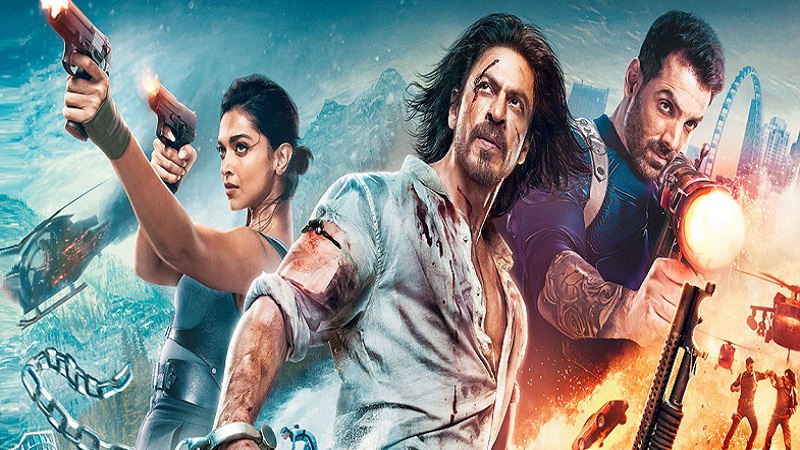
Consider “Pathan,” featuring a Muslim superstar, yet the film weaves a narrative that’s anything but supportive of the community he represents. It’s a clever ploy—use a beloved Muslim face to sell a story that subtly fans the flames of distrust against his own, masking the bitter pill of bias with the sugarcoat of mainstream cinema.

Then there’s “Border,” which dramatizes historical conflicts with Pakistan to such an extent that the enemy image becomes not just a wartime necessity but a peacetime norm. The movie, under its garb of patriotism, perpetuates a narrative that sees India perpetually at odds with its neighbor, reinforcing a ‘them vs. us’ mindset critical to the RSS’s broader agenda.

Upcoming “Fighter“ is poised to follow this trajectory, promising high-octane action against the backdrop of national security—a theme ripe for the injection of ideological narratives. The film’s anticipation already hints at how it will likely champion the cause of national integrity, while subtly propagating of anti-Pakistan rhetoric, all in the guise of a thrilling cinema.

“Dil Se” is a poetic saga that pits love against a backdrop of insurgency, exploring the complexities of loyalty. Yet, the portrayal of its characters suggests an unsettling equation: Muslim = suspect, a stereotype that resonates with the broader saffron agenda, ensuring the audience’s empathy is carefully directed.

“Uri: The Surgical Strike” pumps up the volume on heroism and revenge. It’s not just a flick; it’s a full-blown rally cry that sings in tune with the RSS’s tunes. The film turns real-life military drama into a thrilling show of bravery, getting folks riled up while skipping over the tricky questions about what these actions actually mean for everyone involved.
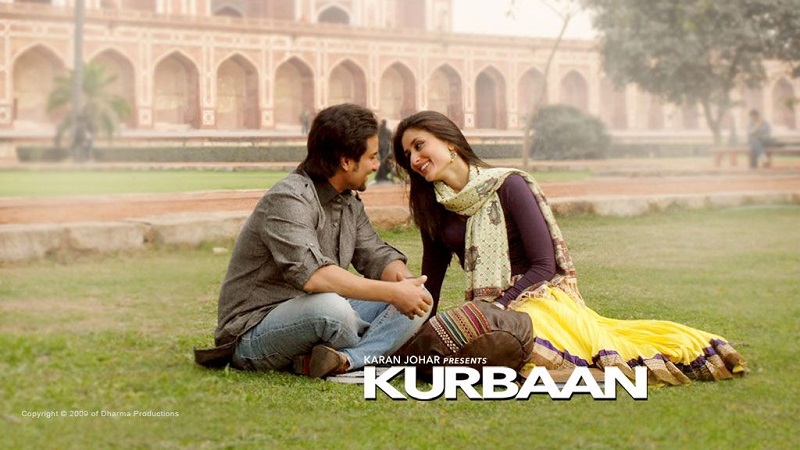
“Kurbaan,” dressed up like a love story, but underneath, it’s planting seeds of mistrust towards Muslims, portraying them mostly as radicals or villains. This movie stealthily taps into the fears and biases that some individuals might harbor, bringing these ideas into the spotlight. It aligns perfectly with RSS’s strategy of marginalizing Muslims, relegating India’s largest minority to sidelines under guise of a blockbuster narrative.
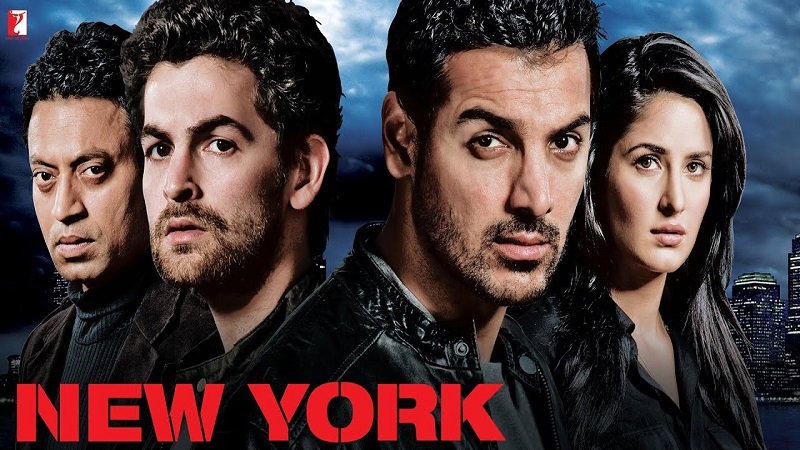
“New York” had the potential to delve deeply into the injustices faced by Muslims post-9/11. Instead, it falls back on old patterns, depicting its Muslim characters with an aura of suspicion and menace. The film weaves its storyline around the specter of terrorism in a manner that inadvertently endorses the RSS’s perspective, subtly reinforcing misconceptions about Muslims both within India and beyond.
It is evident that Bollywood movies transcend mere entertainment; they convey narratives cleverly crafted to align with a specific political agenda. By consistently portraying Muslims and Pakistan in a negative spotlight, Indian blockbuster propagate a theme which advances the goals of the RSS, perpetuating a cycle of fear and nationalistic fervor, garnering vote but disregards the imperative of unity amidst Indian polity.

Through these cinematic offerings, Bollywood not only entertains but also serves as a conduit for a broader political ideology, with the RSS leveraging cinema as a powerful ally. By shaping narratives that subtly endorse Hindutva ideologies, sometimes even employing Muslim actors to deliver skewed messages, Bollywood contributes to a socio-political echo chamber. Bollywood is controlled by underworld Dons of Delhi, who are then influenced by and influences the Bahubaalis of BJP. This astute manipulation ensures that the RSS’s narrative of nationalism and division reverberates not just within its own circles but also resonates loudly in the ostensibly secular bastions of India’s cherished film industry.

However, there’s a twist: it’s not just ideology propelling these blockbusters; it’s the allure of wealth! The BJP’s coffers have been substantially replenished by corporate behemoths like the Tata Group, which contributed a staggering 75% of the party’s funds in 2018-19 through the Progressive Electoral Trust, a trust owned by Tata. The cozy relationship between the BJP and big business isn’t merely about financial contributions; it signifies the perilous concentration of political and quasi-religious authority in the hands of a select few.

Leading this ensemble of billionaires is Mukesh Ambani, one of India’s wealthiest individual and a pivotal figure in the BJP’s narrative. Ambani’s recent extravaganza, pre-wedding celebrations of his son Anant, was more than a showcase of opulence; it was a demonstration of influence and clout. The event, graced by luminaries like Bill Gates and Mark Zuckerberg, underscored Ambani’s economic prowess and his sway in political circles. Who would have imagined that one man could compel the titans of Facebook and Microsoft to sway to desi beats and Bollywood tunes?
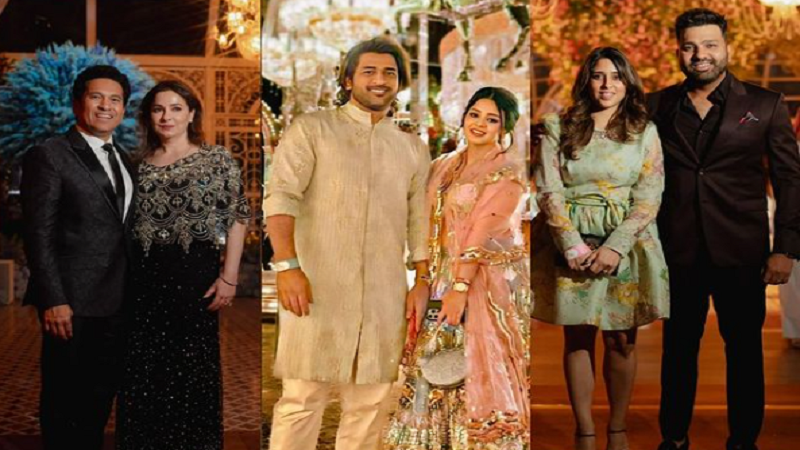
Yet, Ambani’s influence doesn’t conclude here. Through his vast media empire, encompassing more than 70 outlets reaching 800 million viewers weekly, Ambani wields the power to shape perceptions and dominate the narrative. From cricket to cinema, the Ambanis have astutely cultivated their soft power, ensuring that their influence transcends the confines of the boardroom. This consolidation of economic and cultural influence in the hands of a privileged few poses a grave threat to India’s democracy. With opposition marginalized and media landscape dominated by pro-BJP voices, dissenting viewpoints are suppressed, and vision of a democratic, secular India is imperiled.
While the BJP dances to the tune of its billionaire backers, the common man is left to bear the brunt of their extravagant show of opulence. The economic strategies of the Modi Government, tailored to favor the affluent elite, have plunged millions into hardship. Consequently, today around 100 million Indians live below poverty line. From the tumultuous demonetization that disproportionately affected the poor to the hasty rollout of the Goods and Services Tax (GST) that burdened small enterprises, the BJP’s economic legacy is marred by mismanagement and adversity. The lack of adequate social welfare measures has left millions of Indians vulnerable to economic hardship, raising questions about the Government’s commitment to inclusive growth.
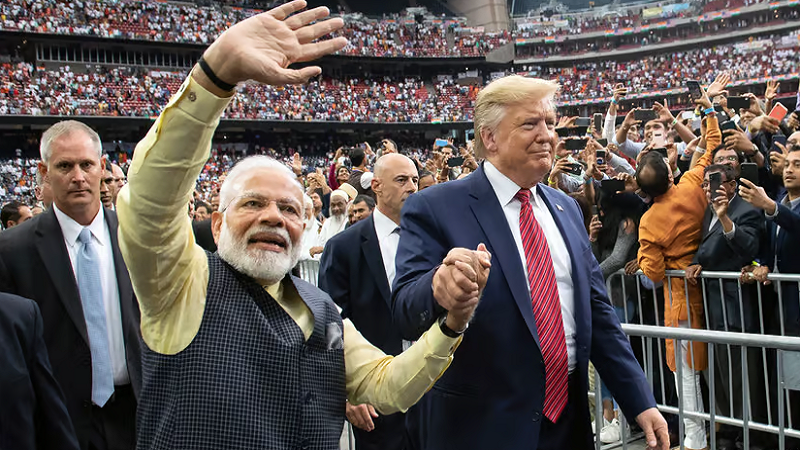
But who needs economic prosperity when there are grand spectacles like the “Howdy Modi” event in Houston, Texas? This gathering, where Prime Minister Modi shared the stage with US President Donald Trump, was hailed as a triumph of Indian diplomacy. Yet, beneath surface of pomp and pageantry lies a darker reality: event was orchestrated by Texas India Forum, a US-based organization with close ties to the BJP and its benefactors. By fostering ties with influential members of the Indian diaspora, particularly in countries like the US, Canada, and the UK, the BJP aims to enhance India’s soft power and influence on the global stage. However, such efforts also raise concerns about the politicization of diaspora communities and their role in shaping India’s foreign policy objectives.
The BJP’s alliance with the elite transcends national boundaries; it extends to the diaspora as well. Overseas Indians, particularly in the US, Canada, and the UK, have been courted by the BJP for their financial and political support. Events like “Chai Pe Charcha,” where Modi engages with NRIs over a cup of tea, have become fixtures of BJP’s election campaigns, underscoring the notion that money makes the mare go, regardless of geographical location or the destination.

Now, let’s delve into the remarkable saga of Tata and Modi—a match forged in the crucible of corporate ambition, where governmental largesse paves golden pathways for corporate giants to stride upon. Under the illustrious tenure of Prime Minister Narendra Modi, Tata hasn’t merely thrived; it has soared like a kite on a balmy day, propelled by the favorable winds of Modi’s policies.
Picture a cricket match where one team enjoys the finest bats, the smoothest pitch, and even the sunlight seems to favor them. That’s Tata playing under Modi’s leadership. Since Modi assumed office in 2014, it’s been a jubilant era for Tata. Every policy tweak, every regulatory approval appears to have been tailor-made for Tata to seize upon, like a corporate magician conjuring success from thin air. Consider, for instance, the defense sector, once a domain reserved exclusively for public enterprises. Under Modi’s stewardship, the gates swung wide open, and Tata sauntered in like a VIP guest at a gala. Deals? Contracts? Partnerships? Tata’s got a finger in every pie, while Modi’s Administration plays the role of the genial host, ensuring the buffet of opportunities remains well-stocked.
Then there’s the infrastructure boom—smart cities, electric vehicles, you name it. Modi’s vision of a rejuvenated India resembles a bustling construction site ,where Tata’s heavy machinery is always welcome to break the ground. Yet, the surge isn’t confined to tangible assets; it’s a rebranding endeavor, with Tata positioned as the torchbearer of a futuristic, Modi-fied India.
Let’s not overlook the Air India saga—a once-proud jewel of Indian aviation, now in need of a makeover. Who steps in to restore its former glory? Tata, naturally, with a helping hand from Modi’s Administration, smoothing out the financial and bureaucratic wrinkles like a seasoned draper preparing a suit for a grand occasion.
In this flourishing partnership, Modi’s government assumes the role of the loyal wingman, orchestrating success after success for Tata. The outcome? Tata’s influence in the Indian economy isn’t just extensive; it’s profound and intricate, interwoven into the very tapestry of Modi’s narrative of development. It’s a spectacle, truly, a showcase of mutual back-scratching where corporate interests align seamlessly with governmental objectives, both parties walking away richer in wealth and influence.

As the 2024 elections are being conducted and has reached its 5th term, the BJP’s dependence on the affluent elite has further given. With the patronage of billionaires like Ambani and Tata, the party is confident in its ability to retain power and advance its agenda of Hindu nationalism. However, as the chasm between the wealthy and the impoverished widens, and dissent is suppressed in the name of national unity, one cannot help but ponder: is this the democracy envisioned by Indian founding fathers?
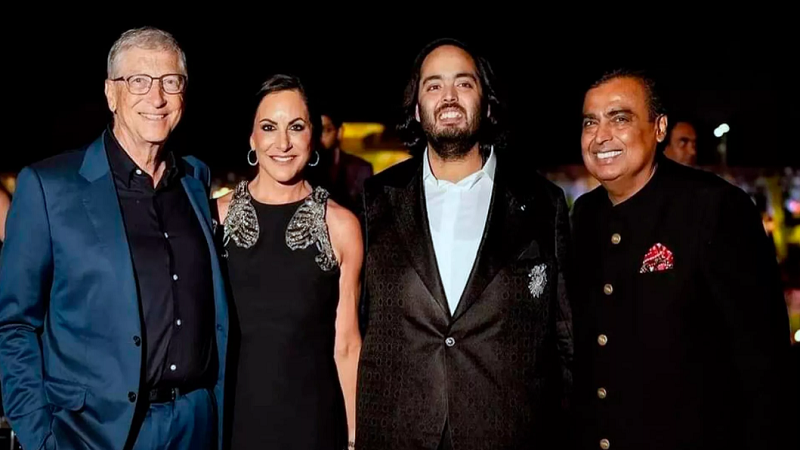
In the tumultuous whirlwind of Indian politics, the financial elite has emerged as the master manipulator, deftly pulling the strings of power. Under the iron-fisted leadership of Narendra Modi, the BJP has forged alliances with industry giants, reshaping the landscape of Indian democracy in the process. This symbiotic relationship has empowered the BJP with unprecedented wealth and influence, while simultaneously dismantling the very foundation of secularism that once defined India. The collusion between a Bollywood, business tycoons by actions as financial spoort of India and BJP saffronization the secular fall of India is pushing too far into the wilder man.

Modi’s tenure has been akin to a wrecking ball demolishing the legacy of former Prime Minister Manmohan Singh, Financial Architect of Modern India, who painstakingly nurtured India’s secular identity over decades. Singh’s efforts now lie in ruins as Modi’s BJP tramples over the principles of tolerance and diversity, leaving behind a trail of communal discord and polarization. The once-bright beacon of Indian democracy has dimmed under the shadow of Modi’s authoritarian rule, with dissenting voices silenced and institutions weakened.
As India hurtles towards an uncertain future, the notion of responsible governance appears to be a distant dream. The BJP’s stranglehold on power has tightened, suffocating any semblance of opposition and reducing Indian democracy to a mere façade. Modi’s brand of politics, characterized by its authoritarianism and divisive rhetoric, has pushed India perilously close to the edge. The BJP’s narrative of progress and development serves as a thinly veiled disguise, concealing the erosion of democratic principles and the concentration of power in the hands of a select few.
As the curtains draw to a close on yet another BJP victory, it puts forth the question: at what cost? The ascent of India’s oligarchs, spearheaded by figures like Ambani, comes at the expense of the nation’s democratic ideals. Amidst the staged drama and manufactured crises, the genuine struggles of the common citizen often fade into obscurity, relegated to the periphery of this grand production.
Reflecting on this farcical charade, it becomes increasingly apparent that India’s democracy has descended into little more than a scripted performance, where the pursuit of power and prestige eclipses the authentic welfare of the people. In this theater of the absurd, it is imperative for Indians, the audience, to remain vigilant and discerning, refusing to be passive spectators to the theatrics of politics. Only by exposing the staged nature of Indian politics can they aspire to usher in a new era of genuine governance, where the voices of the people resonate louder than the echoes of scripted narratives.
Authors
-

Wanya Hassan Sidhu is an Islamabad-based freelance researcher, with an MS in media sciences and BS in Media Communication.
View all posts -

Sehr Rushmeen, an Islamabad based freelance researcher, did her MPhil from National Defence University (NDU) in Strategic Studies, and her BSc from University of London (UOL) in International Relations. Her area of research interest is Strategic Nuclear Studies, Artificial Intelligence in Warfare, South China Sea and South Asian Politics. She tweets as @rushmeentweets and can be reached on sehrrushmeenwrites@gmail.com.
View all posts


















Comments (1)
trendaddictorsays:
September 18, 2024 at 11:00 amHi i think that i saw you visited my web site thus i came to Return the favore Im attempting to find things to enhance my siteI suppose its ok to use a few of your ideas